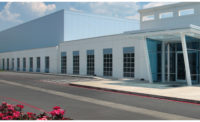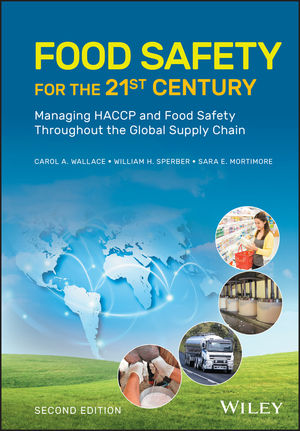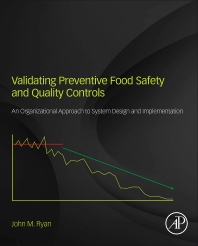Cold Food Safety: Certified safe
Reser’s Fine Foods Quality Assurance Director Brad Pacey talks about food safety at the nation’s largest refrigerated salads and side dish company.

 Refrigerated & Frozen Foods: What were a few big projects last year?
Refrigerated & Frozen Foods: What were a few big projects last year?
Brad Pacey: It is not really just one thing. Rather, I’d say we’ve focused on long list of items that are critical to providing safe, consistent, quality products.
First, we strive to introduce and implement industry best practices in each of our facilities. This means we embrace the latest steps toward Global Food Safety Initiative (GFSI) and Safe Quality Foods (SQF) Level 3 certifications. We want to improve our capabilities related to raw material and ingredient traceability. We also want to maintain robust employee training programs.
Secondly, we continue to work with and encourage our vendors to also pursue GFSI certification. Thirdly, we evaluate factors that contribute to any reoccurring in-plant issue. Then we establish new work processes and work flow patterns that make doing a task correctly and safely – the easiest way to do that task.
RFF: You’re promoting GFSI certification to your vendors. How about other supplier initiatives?
Pacey: We have done a lot of work on the food safety, quality and consistency attributes for Reser’s new Main St. Bistro Baked brand. There is really nothing else like this [technology, producing a baked texture from the microwave] in the industry right now so we have involved some suppliers from the beginning of this project. We had to start from the ground floor and dig into every detail so ensure that we produce this product safely, consistently and efficiently.
RFF: How does your group interact with Reser’s R&D and sales when it comes to new products?
Pacey: Reser’s QA and plant operations groups help determine how to produce new foods in a safe, consistent and efficient manner – while matching a product developed by R&D. We have what we call an “Intensive Care” program during a new product’s launch phase. We ensure that the product is being produced correctly and matches expectations held by R&D and the customer.
RFF: What you think of high pressure processing?
Pacey: I think high pressure processing has a high potential to increase food safety and shelf life in some products. It’s proven and provides good results as long as products remain sealed in the unopened, original packaging. It’s also very expensive on a per-pound basis – making it difficult to justify for lower-priced foods such as salads.
That said, I think there is a need for consumer education. Shelf life references most likely are based on a product inside a sealed, intact package. However, once a product is removed from the original packaging and exposed to the environment, it may not last until the “use-by” date on the packaging.
RFF: What are a few of your 2012 goals?
Pacey: Our ongoing goal is to identify best practices – from within Reser’s as well as the wider food industry – and implement them at each facility. We’re looking at every factor affecting food safety, consistency and quality. It’s important to take the best programs, policies and practices and make sure we consistently implement them in all facilities.
We stay up to date on best practices by learning from industry organizations, such as the Refrigerated Foods Association and the Grocery Manufacturers Association. We also talk to customers, regulators, GFSI and SQF certification personnel and third-party auditors. Another 2012 goal is to ensure that Reser’s is prepared when federal Food Safety Modernization Act provisions take effect.
RFF: What industry issues trouble you? How can Reser’s address that problem?
Pacey: One thing that troubles me is our customers’ increasing interest in “natural” formulations for refrigerated food products. The trend is good in many ways. However, there are hidden technical and food safety concerns that are poorly understood by many buyers.
Behind the scenes, we have a series of proven food safety barriers that start with formulation and that have been in place for years. More natural products make handling and storage practices – both at the plant and by the consumer – much more important. It also means everyone – particularly consumers – must adhere more strictly to shorter shelf life and “use-by” dates for these products.
Reser’s has solutions for natural [product] requests but to keep them safe, our ingredient costs are higher. Also, our customers’ logistics procedures must bear more responsibility. Consumers’ proper product handling becomes much more critical as well.


“We embrace the latest steps toward Global Food Safety Initiative and Safe Quality Foods Level 3 certifications. We want to improve our capabilities related to raw material and ingredient traceability. We also want to maintain robust employee training programs.” – Brad Pacey
Brad Pacey: It is not really just one thing. Rather, I’d say we’ve focused on long list of items that are critical to providing safe, consistent, quality products.
First, we strive to introduce and implement industry best practices in each of our facilities. This means we embrace the latest steps toward Global Food Safety Initiative (GFSI) and Safe Quality Foods (SQF) Level 3 certifications. We want to improve our capabilities related to raw material and ingredient traceability. We also want to maintain robust employee training programs.
Secondly, we continue to work with and encourage our vendors to also pursue GFSI certification. Thirdly, we evaluate factors that contribute to any reoccurring in-plant issue. Then we establish new work processes and work flow patterns that make doing a task correctly and safely – the easiest way to do that task.
RFF: You’re promoting GFSI certification to your vendors. How about other supplier initiatives?
Pacey: We have done a lot of work on the food safety, quality and consistency attributes for Reser’s new Main St. Bistro Baked brand. There is really nothing else like this [technology, producing a baked texture from the microwave] in the industry right now so we have involved some suppliers from the beginning of this project. We had to start from the ground floor and dig into every detail so ensure that we produce this product safely, consistently and efficiently.
RFF: How does your group interact with Reser’s R&D and sales when it comes to new products?
Pacey: Reser’s QA and plant operations groups help determine how to produce new foods in a safe, consistent and efficient manner – while matching a product developed by R&D. We have what we call an “Intensive Care” program during a new product’s launch phase. We ensure that the product is being produced correctly and matches expectations held by R&D and the customer.
RFF: What you think of high pressure processing?
Pacey: I think high pressure processing has a high potential to increase food safety and shelf life in some products. It’s proven and provides good results as long as products remain sealed in the unopened, original packaging. It’s also very expensive on a per-pound basis – making it difficult to justify for lower-priced foods such as salads.
That said, I think there is a need for consumer education. Shelf life references most likely are based on a product inside a sealed, intact package. However, once a product is removed from the original packaging and exposed to the environment, it may not last until the “use-by” date on the packaging.
RFF: What are a few of your 2012 goals?
Pacey: Our ongoing goal is to identify best practices – from within Reser’s as well as the wider food industry – and implement them at each facility. We’re looking at every factor affecting food safety, consistency and quality. It’s important to take the best programs, policies and practices and make sure we consistently implement them in all facilities.
We stay up to date on best practices by learning from industry organizations, such as the Refrigerated Foods Association and the Grocery Manufacturers Association. We also talk to customers, regulators, GFSI and SQF certification personnel and third-party auditors. Another 2012 goal is to ensure that Reser’s is prepared when federal Food Safety Modernization Act provisions take effect.
RFF: What industry issues trouble you? How can Reser’s address that problem?
Pacey: One thing that troubles me is our customers’ increasing interest in “natural” formulations for refrigerated food products. The trend is good in many ways. However, there are hidden technical and food safety concerns that are poorly understood by many buyers.
Behind the scenes, we have a series of proven food safety barriers that start with formulation and that have been in place for years. More natural products make handling and storage practices – both at the plant and by the consumer – much more important. It also means everyone – particularly consumers – must adhere more strictly to shorter shelf life and “use-by” dates for these products.
Reser’s has solutions for natural [product] requests but to keep them safe, our ingredient costs are higher. Also, our customers’ logistics procedures must bear more responsibility. Consumers’ proper product handling becomes much more critical as well.
Looking for a reprint of this article?
From high-res PDFs to custom plaques, order your copy today!







